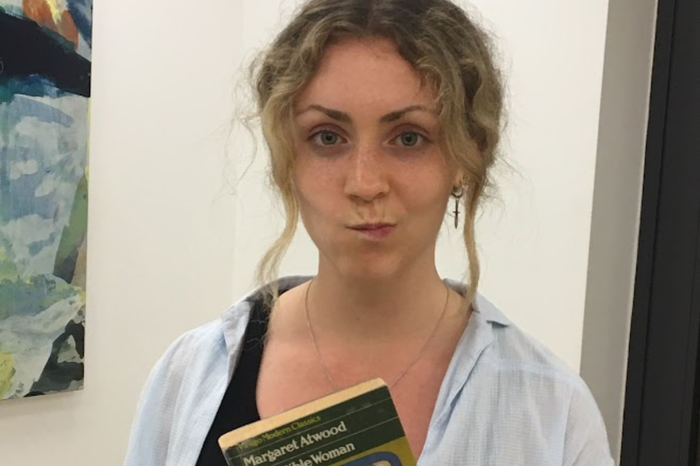There is no such thing as ‘children’s’ books
India Hansra reflects on her childhood favourites, the most important books she’ll ever read

Childhood is perhaps the time when reading was given the most importance; from powering through the Biff, Chip and Kipper books to completing summer reading challenges at your local library, reading took the centre stage in primary education. Now, reading for pleasure has been downgraded to the ranks of a pastime, or a topic of conversation for Cambridge students at tragic afterparties. While it may be a shame that reading as an adult is perceived to be nothing more than a discussion point for cocky humanities students, there is sense in reading for pleasure being aimed at children. While the books we read as adults can be undoubtedly personally profound, it’s the books we read as children that shaped us into the adults we are today.
“The books you read as a child create the images that remain with you for life”
We all like to claim to be highly imaginative but, the reality is, having an inventive take in your supervision essay isn’t quite the same as being able to create entire worlds at the click of your finger. Our imaginative nature disappears with adulthood, while children have the ability to stretch the bounds of what they read, attributing voices or a personality to a certain character, or even changing the end of a story. One of my earliest memories of reading was being read aloud the lines of The Lamplighter by Robert Louis Stevenson: “My tea is nearly ready and the sun has left the sky; / It’s time to take the window to see Leerie going by…”. As a child, I remember forming images of the street, the sky, and the character — ones that have stuck with me as I’ve grown up. Adult life is likely to leave you wondering when your next deadline is, or what task you’ve forgotten to do, not leaving much space for the same childlike artistry. So perhaps it is the books you read as a child that create the images that remain with you for life.
“There is no such thing as a ‘child’s book’ and an ‘adult’s book’; it is more about the way you read them”
What you read as a child not only sticks with you but changes your outlook on life. I devoured the Enid Blyton books, not only for the plots, but also the yearning for a carefree childhood frankly incompatible with the life set out for me by the early 2010s. The complex schemes of The Famous Five or The Secret Seven would appeal to any child, providing the basis for an imaginary game and fulfilling an eager imagination. For me, the books did not just that but presented me with a possibility that I could not attain — a childhood of a time long gone. The idea of being out all day with hardly any parental supervision, solving mysteries and creating plots left me largely dissatisfied with my comfortable 21st century childhood of endless afternoons playing Wii Sports and walks in the local park.
What you read throughout childhood shapes your literary tastes as an adult; your childhood favourites often strike a chord with your most-treasured adult books. As an older child, I must have attempted to read anything with even an undertone of mystery, a genre which I carried with me into adulthood – the Murder Most Unladylike series quickly being replaced by Donna Tartt’s The Secret History, or Ian McEwan’s Atonement. I have always been a fan of dystopian novels; while my tastes evolved from Divergent to the Chaos Walking series, to Orwell’s 1984, the genre itself has been one of my favourites since childhood. Childrens’ and adults’ books are not that dissimilar; the storyline and issues are alike — it’s just the intended audience that differs. I remember reading Orwell’s Animal Farm towards the end of primary school, and re-reading it around the age of 15, and while I enjoyed the book both times, the political motivations behind the novel only came to light the second time reading it. There is no such thing as a ‘child’s book’ and an ‘adult’s book’; it is more about the way you read them.
The books you read as a child are so important. We are at our most imaginative as children; our childhood favourites can teach us about our world and subsequently allow us to change our perspective on it. Your favourite books as a child should always have a place on your shelf, and in your heart. No matter how good the books you read as an adult, they can never replace your childhood favourites.
 News / Cambridge study finds students learn better with notes than AI13 December 2025
News / Cambridge study finds students learn better with notes than AI13 December 2025 News / Cambridge Vet School gets lifeline year to stay accredited28 November 2025
News / Cambridge Vet School gets lifeline year to stay accredited28 November 2025 Science / Did your ex trip on King’s Parade? The science behind the ‘ick’12 December 2025
Science / Did your ex trip on King’s Parade? The science behind the ‘ick’12 December 2025 News / Uni Scout and Guide Club affirms trans inclusion 12 December 2025
News / Uni Scout and Guide Club affirms trans inclusion 12 December 2025 Arts / Modern Modernist Centenary: T. S. Eliot13 December 2025
Arts / Modern Modernist Centenary: T. S. Eliot13 December 2025








